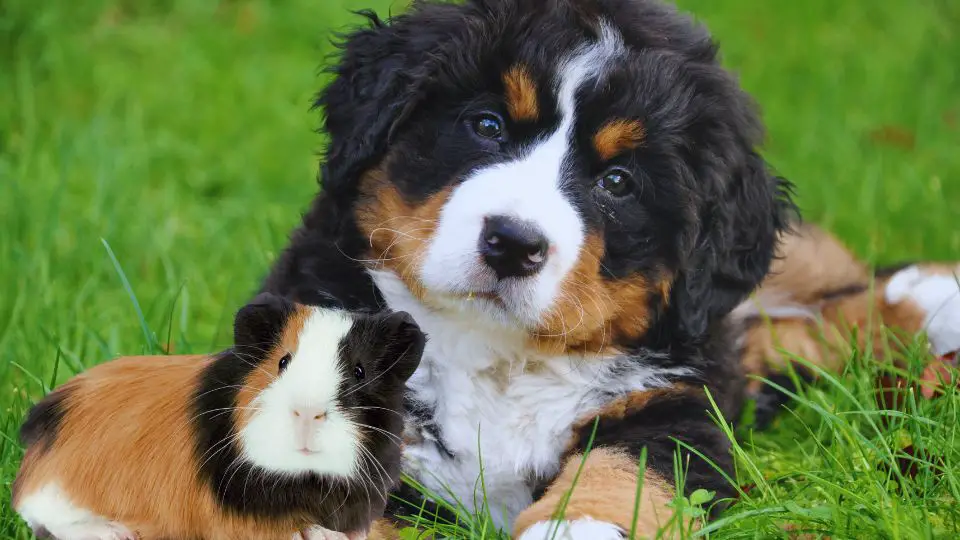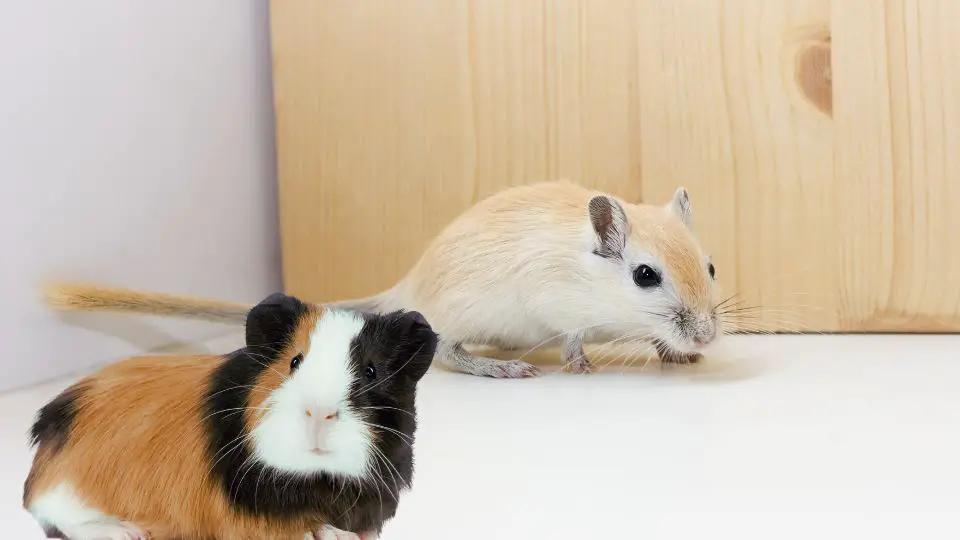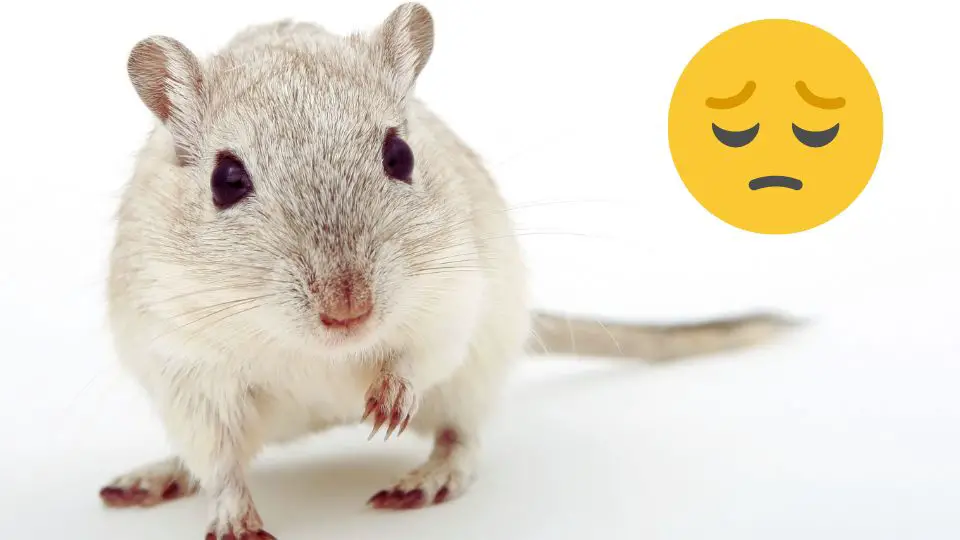When considering getting a pet, it’s important to weigh the pros and cons of each type of animal to determine if they’re the right fit for you and your lifestyle.
Gerbils, in particular, make great pets for many families and individuals, but they also come with their own set of unique challenges.
In this article, we’ll explore the pros and cons of keeping gerbils as pets, so you can make an informed decision about whether they’re the right choice for you. From low maintenance and low cost of care, to short lifespans and certain health issues, we’ll cover all the aspects of gerbil ownership.
Pros of Keeping Gerbils as Pets
Low maintenance
Gerbils are relatively low maintenance pets, as they do not require regular grooming or haircuts like some other types of pets. They are also relatively easy to clean up after, as they are usually litter trained and their droppings are small and dry.
In order to keep a gerbil as pet, you have to provide them with food, water, a proper habitat and toys. However, these are all fairly inexpensive items that can be bought at most pet stores.
Cute and playful
Gerbils are known for being cute and playful, and can be great companions for people of all ages. They are active and curious animals that love to explore their surroundings and interact with their owners. Gerbils are also known for being quite social and enjoy the company of other gerbils or humans.
Can be great for kids
Gerbils can make great pets for kids as they are small and easy to handle. They can also be a great way for children to learn about responsibility and caring for a living creature.
Before you get your child a gerbil, you must think if a gerbil is the right pet for them. Some factors that you have to keep in mind before adopting a gerbil are:
- Children’s Age and Maturity Level: Gerbils are small and delicate animals, so they must be handled with care. It is important to consider your child’s age and maturity level before getting a gerbil;
- Available Space: Gerbils need a large and tall habitat as they love to climb. They also require plenty of exercise, so you must make sure that there is enough space for them to run around and play;
- Allergies: Some people may be allergic to the dust created by gerbils, so it is important to consider if anyone in your family has allergies.
- Time Commitment: Gerbils do not require a lot of time, but they still need attention and daily care.
Can be kept in a small space
Gerbils are able to thrive in relatively small spaces, such as a cage or terrarium. This makes them a great pet option for people who live in apartments or have limited space in their home.
Low cost of care
Gerbils have a low cost of care compared to other types of pets. They do not require expensive veterinary care, and their food and bedding costs are minimal. Generally, the cost of keeping a gerbil is much lower than the cost of keeping a larger pet such as a dog or cat.
Beside the initial costs of getting the gerbil, habitat and food, there are other additional costs associated with caring for a gerbil, such as vaccinations, cage maintenance, toys and accessories, or other medical treatments.
The initial costs are at around $150, and after that you’ll have another $150 in yearly expenses for routine care, supplies, and food.
Low noise level
Gerbils are generally quiet animals and do not make loud noises like some other types of pets. This makes them a great pet option for people who live in apartments or have close neighbors.
Can be kept in pairs or groups
Gerbils are social animals and thrive when kept in pairs or groups. Keeping multiple gerbils together can provide them with companionship and enrichment, and also reduce the chances of loneliness.
Can be easily trained
Gerbils can be easily trained to do simple tricks and respond to commands. This can be a fun and interactive way to bond with your gerbil and also provide them with mental stimulation.
Can live for several years
Gerbils have a relatively long lifespan for a small pet, with an average lifespan of 2-4 years. This means that they can be a long-term commitment, but also provide several years of companionship.
You have to take into consideration the fact that gerbils need daily care and attention, so if you are not able to commit to taking care of them on a regular basis, it might not be the best pet for you.
Also, the financial and emotional commitment of caring for a gerbil should not be taken lightly. It is important to understand the pros and cons of owning a gerbil before making the decision to get one.
Can make great classroom pets
Gerbils can make great pets for classroom settings as they are small, low maintenance, and do not require expensive veterinary care. They can also be a great way for children to learn about responsibility and caring for a living creature.
However, it’s important to ensure that the classroom is equipped to provide a safe and comfortable environment for the gerbils.
Cons of Keeping Gerbils as Pets
Short lifespan
One of the main cons of keeping gerbils as pets is their relatively short lifespan. Gerbils typically live for 2–4 years, which may not be suitable for some pet owners who are looking for a longer-term commitment.
Be aware of this when considering getting a gerbil as a pet, and to be prepared for the possibility of losing your pet in a relatively short amount of time.
Requires daily maintenance
Gerbils require daily maintenance to ensure their well-being. This includes cleaning their cage, providing fresh water and food, and ensuring they have adequate exercise and enrichment.
As any other pet, this little animals can be prone to certain health issues, which may require additional care and attention from their owners, so gerbils may not make good pets.
Can be prone to certain health issues
Gerbils can be prone to certain health issues such as tumors, respiratory infections, and dental problems.
Be aware of these potential health issues and to take steps to prevent them, such as ensuring their gerbils have a healthy diet and are kept in a clean and comfortable environment. Regular check-ups with a veterinarian experienced with gerbils are also important to detect any potential health issues early on.
Can carry certain parasites
Gerbils can carry certain parasites, such as mites and lice, which can be transmitted to humans. Gerbil owners have to take steps to prevent and treat any parasite infestations to keep their gerbils and themselves healthy.
Can be aggressive or territorial
Gerbils can be aggressive or territorial towards other gerbils or animals. You have to understand the social dynamics of gerbils and to provide them with appropriate living arrangements, such as keeping them in pairs or groups, to prevent any aggressive or territorial behavior.
Can be sensitive to temperature changes
Gerbils can be sensitive to temperature changes and should be kept in a room with a stable temperature between 64-75°F (18-24°C). Extreme temperatures can cause heat stroke or hypothermia, which can be fatal for gerbils.
Can be an escape risk
Gerbils are known for their burrowing and digging abilities, and they can be an escape risk if their cage is not properly secured. It’s important for gerbil owners to ensure their cage is secure and to supervise their gerbils when they are out of their cage to prevent any escape attempts.
Can be difficult to find a veterinarian experienced with gerbils
Gerbils are not as common a pet as some other small animals and it can be difficult to find a veterinarian experienced with gerbils. This can make it challenging to provide appropriate care for your gerbil in case of illness or injury.
Can have a strong odor
Gerbils produce a strong odor that can be difficult to remove, and can be problematic for some pet owners, especially those who have allergies or sensitivities to strong smells.
Can be a potential allergy risk
Gerbils, like all pets, can cause allergies in some people. It’s important to be aware of the potential for allergies and to take steps to reduce any potential allergic reactions, such as washing your hands after handling gerbils, using a dust mask when cleaning the cage, and providing your gerbils with plenty of fresh air.
Conclusion
In conclusion, gerbils can make wonderful pets for those who understand the pros and cons of owning them. Gerbils require daily maintenance and can be prone to certain health issues, parasites, and aggressive behavior.
They are also sensitive to temperature changes, can be an escape risk, and can have strong odors. Additionally, it can be difficult to find a veterinarian experienced with gerbils and they can be a potential allergy risk.
With proper care and understanding, gerbils can be a fun and rewarding pet for the right person.







